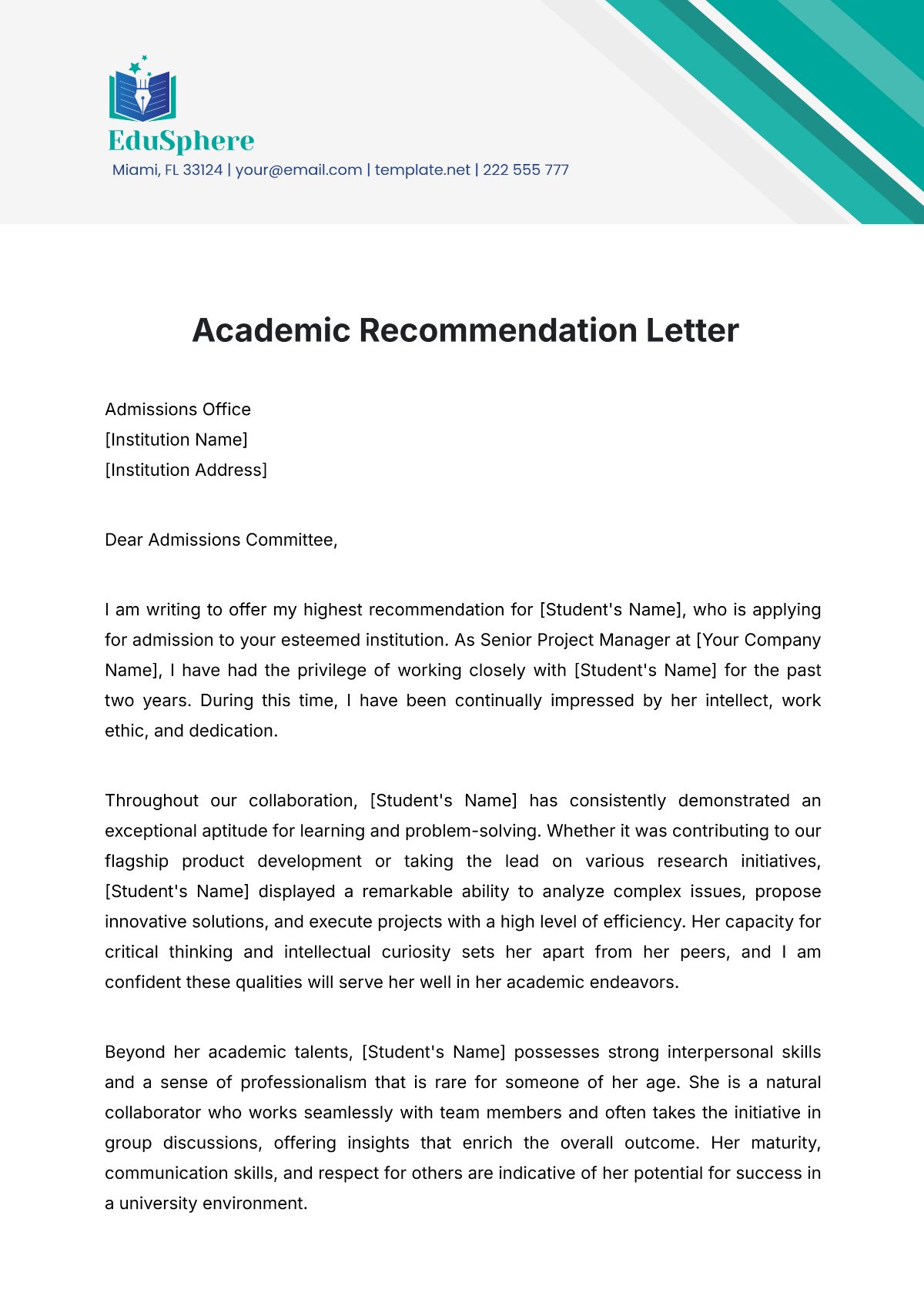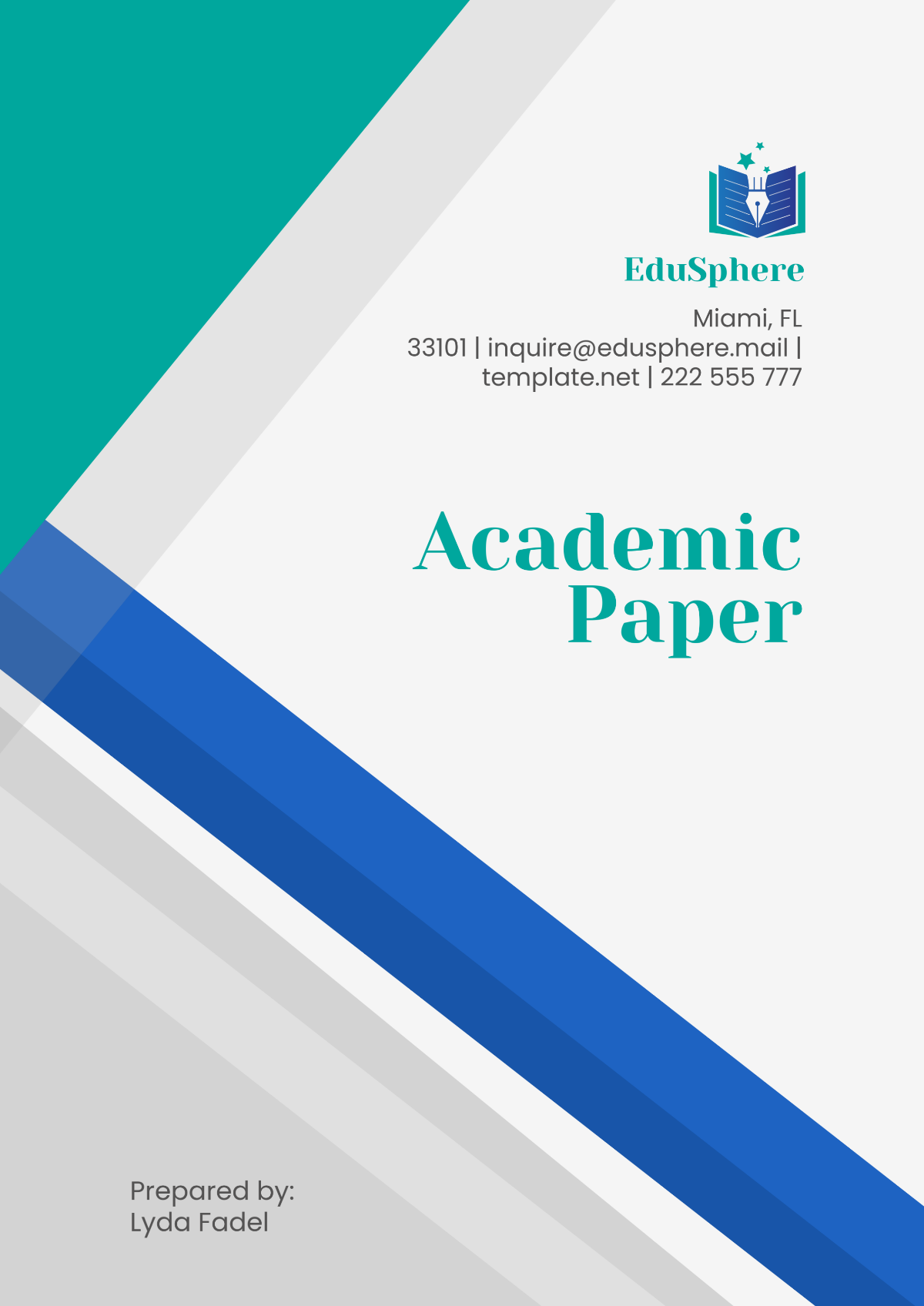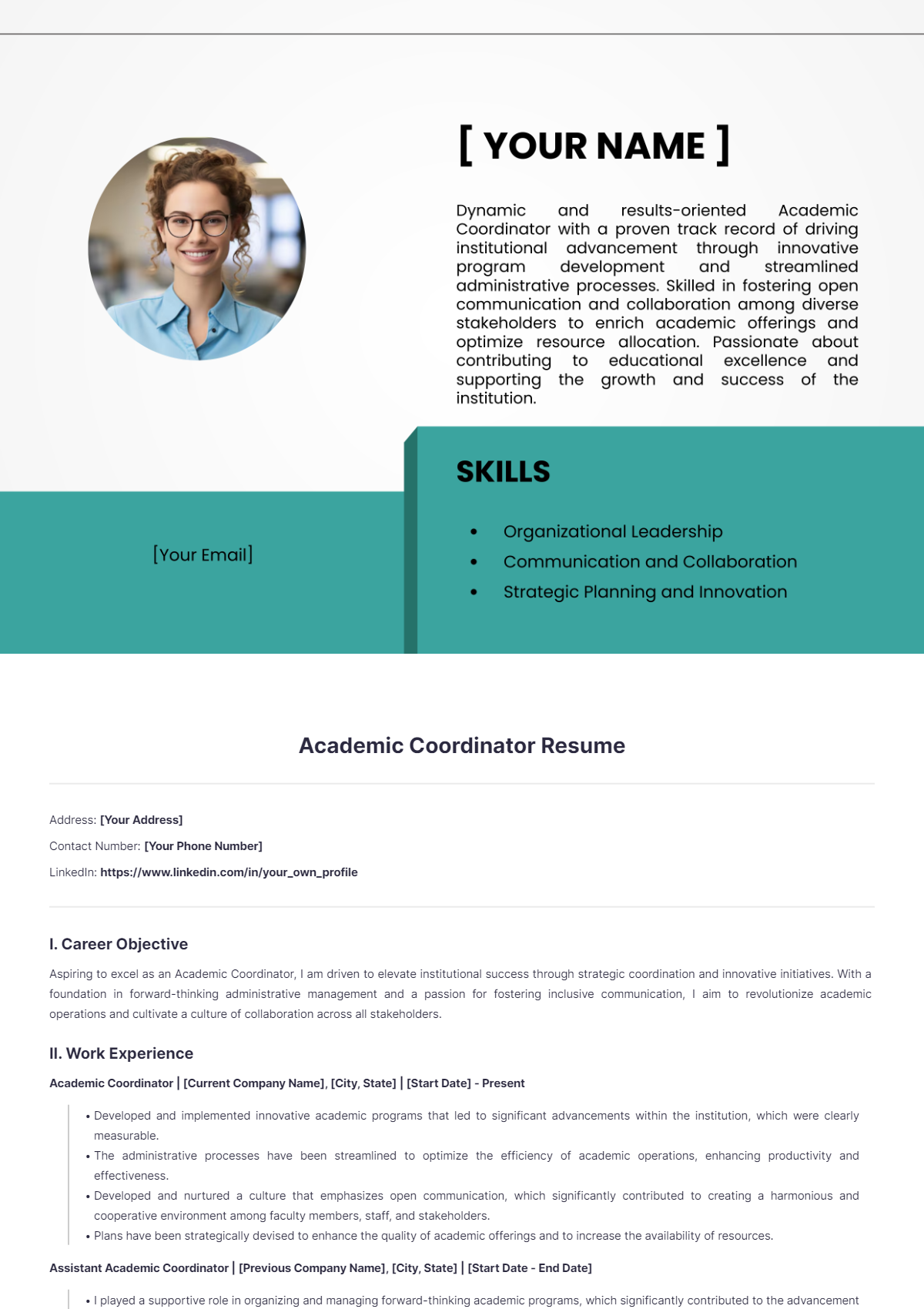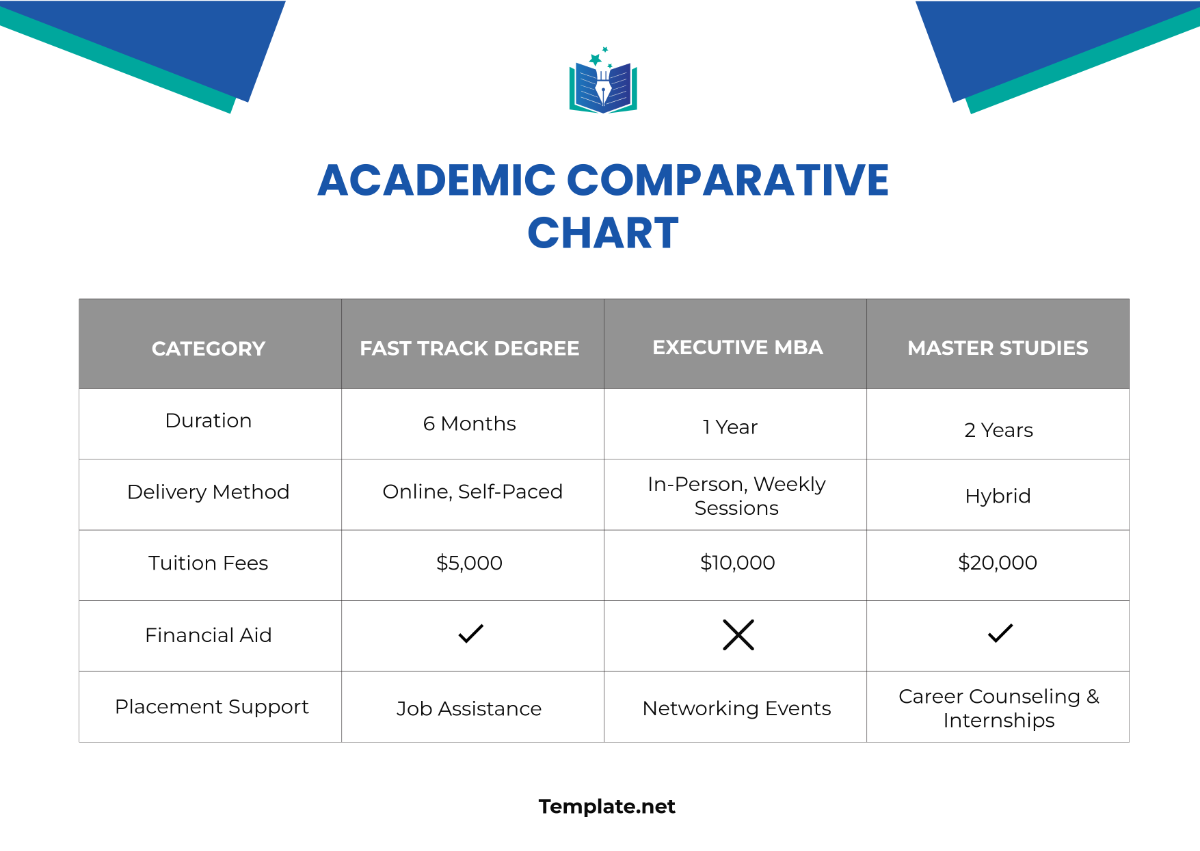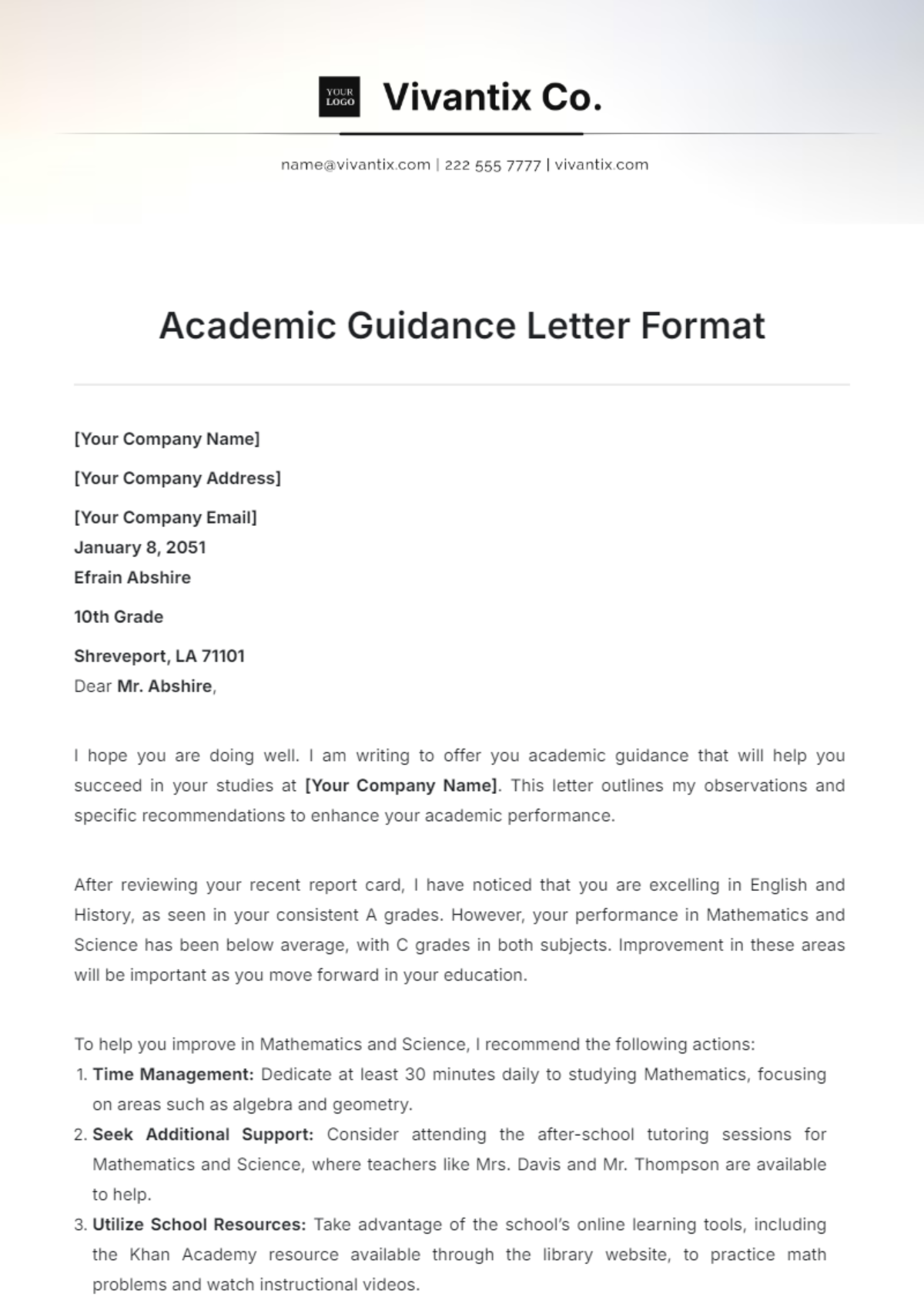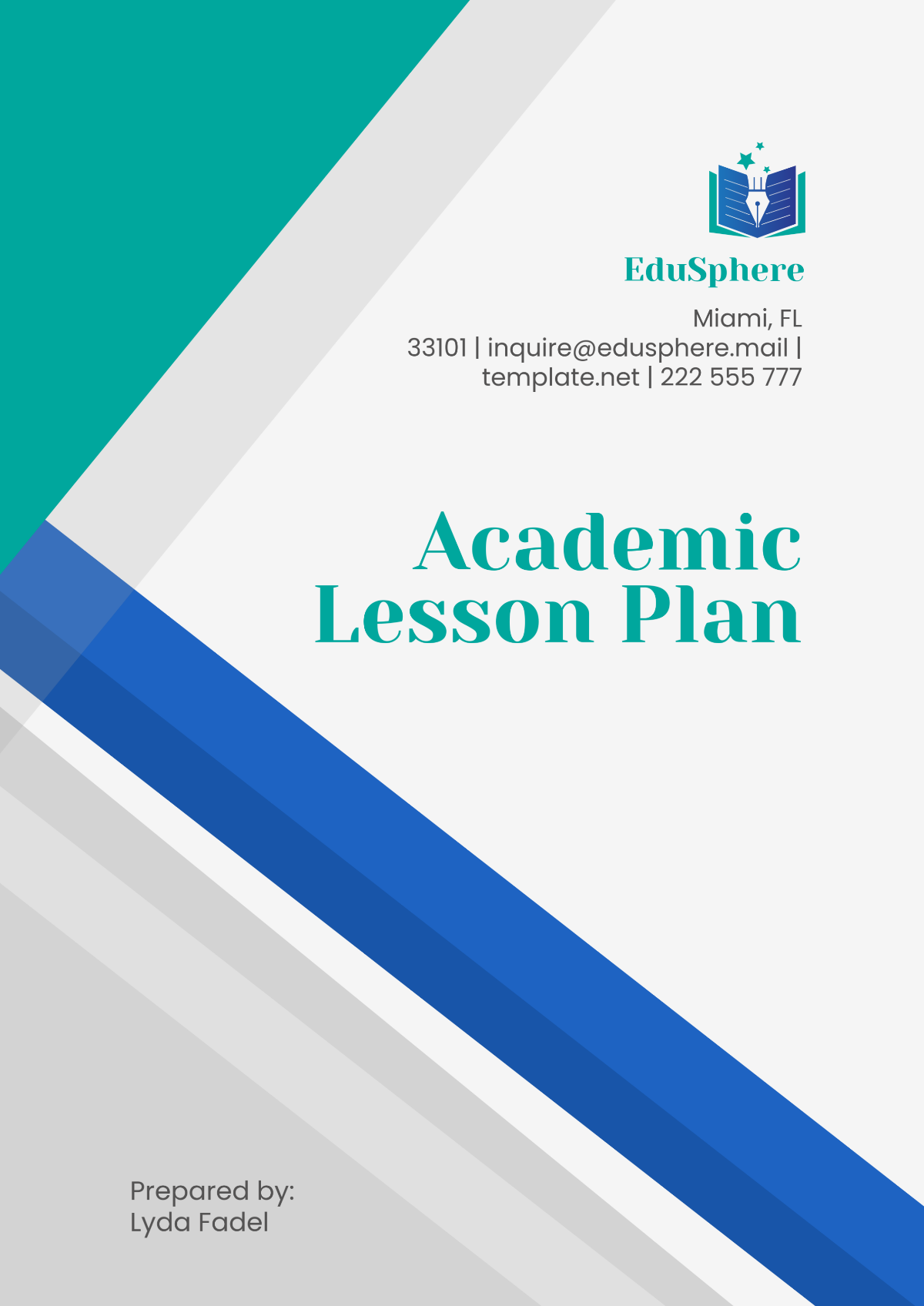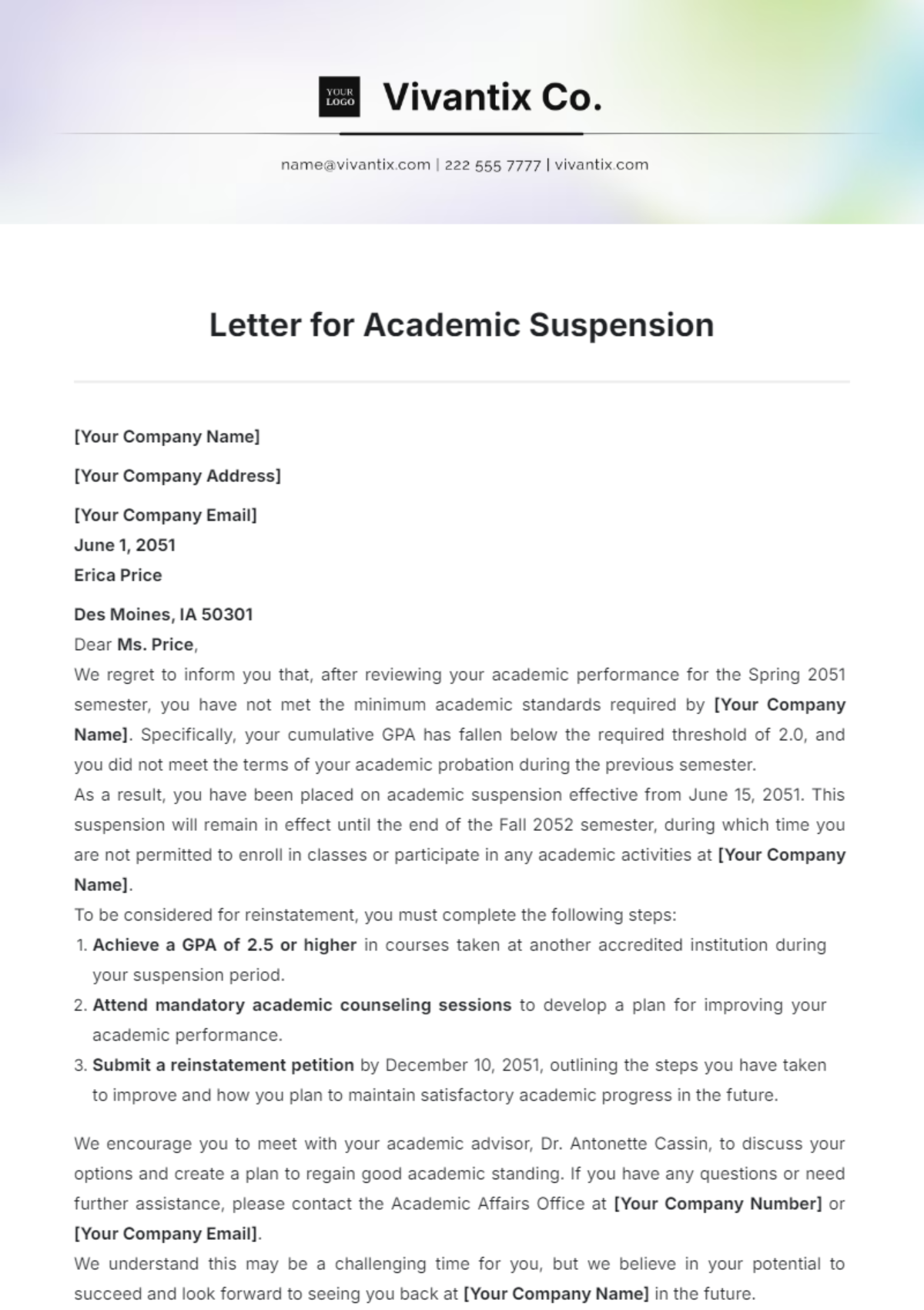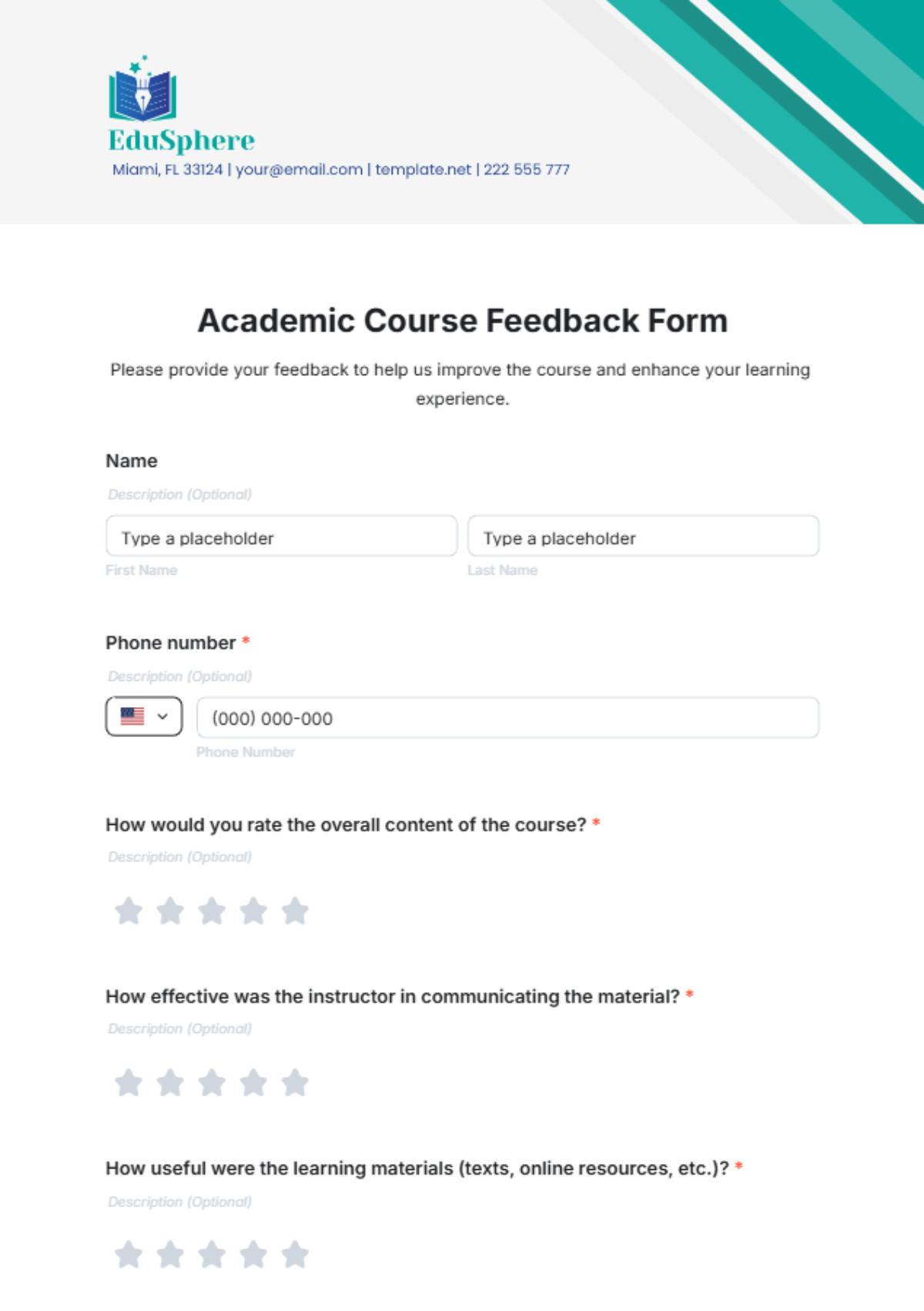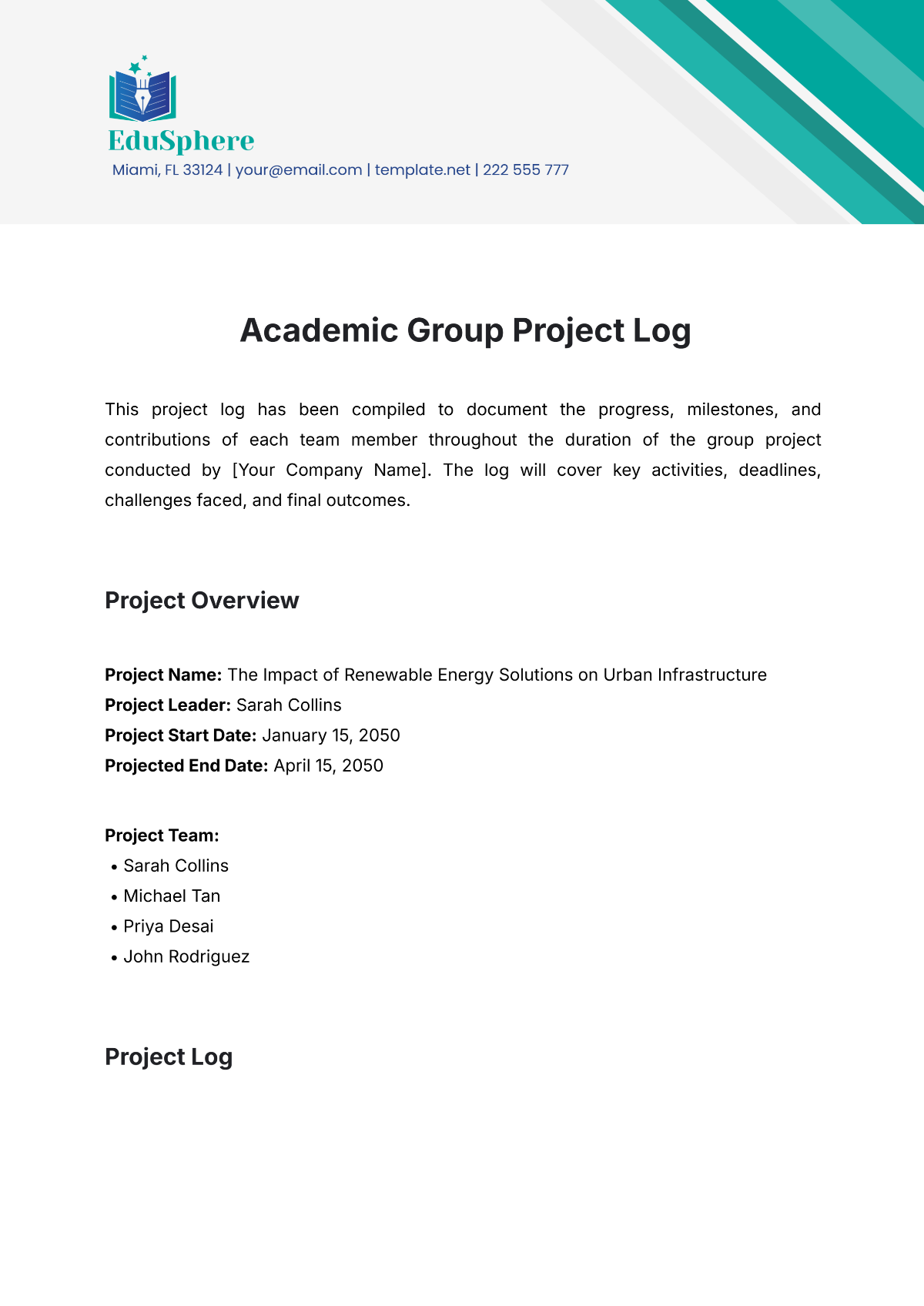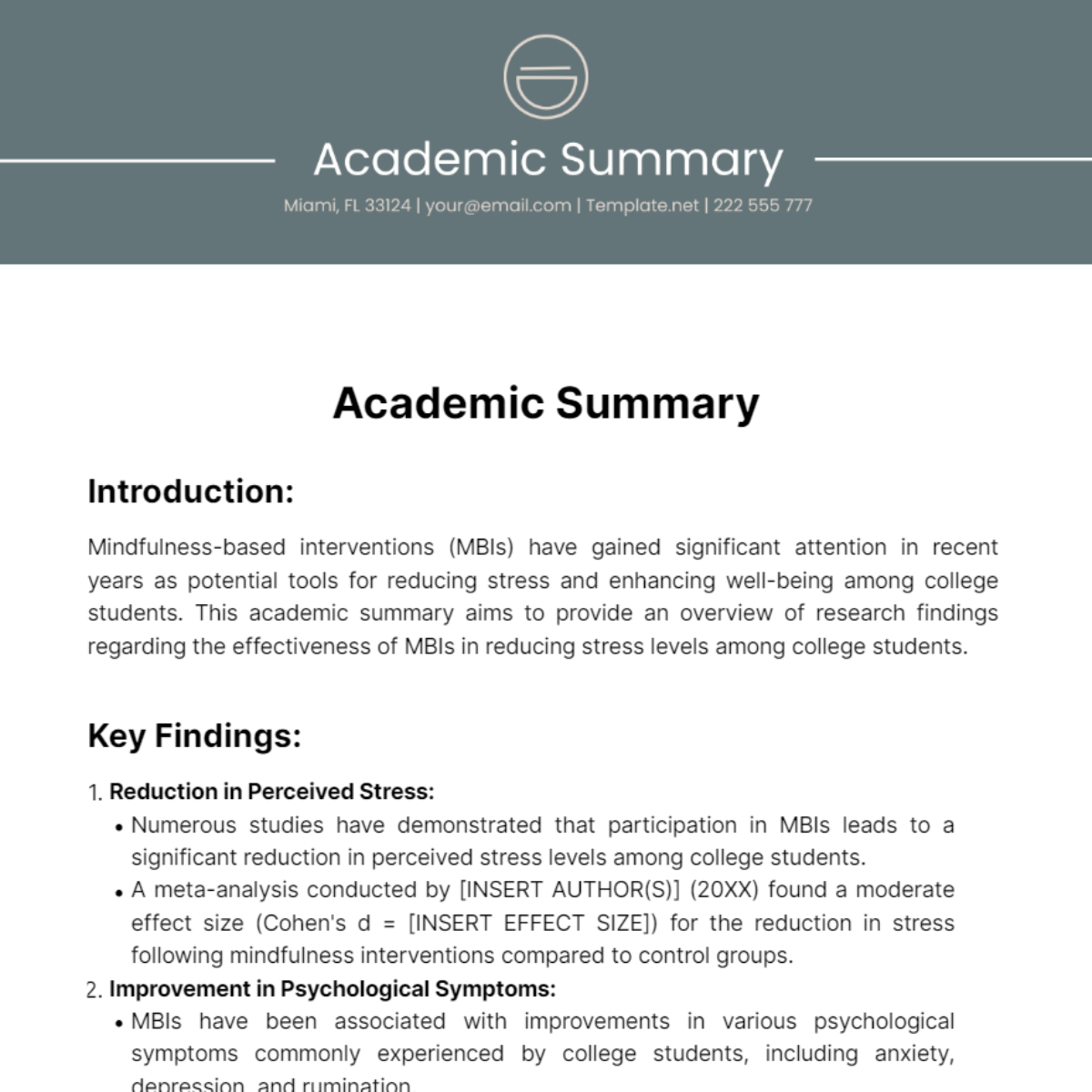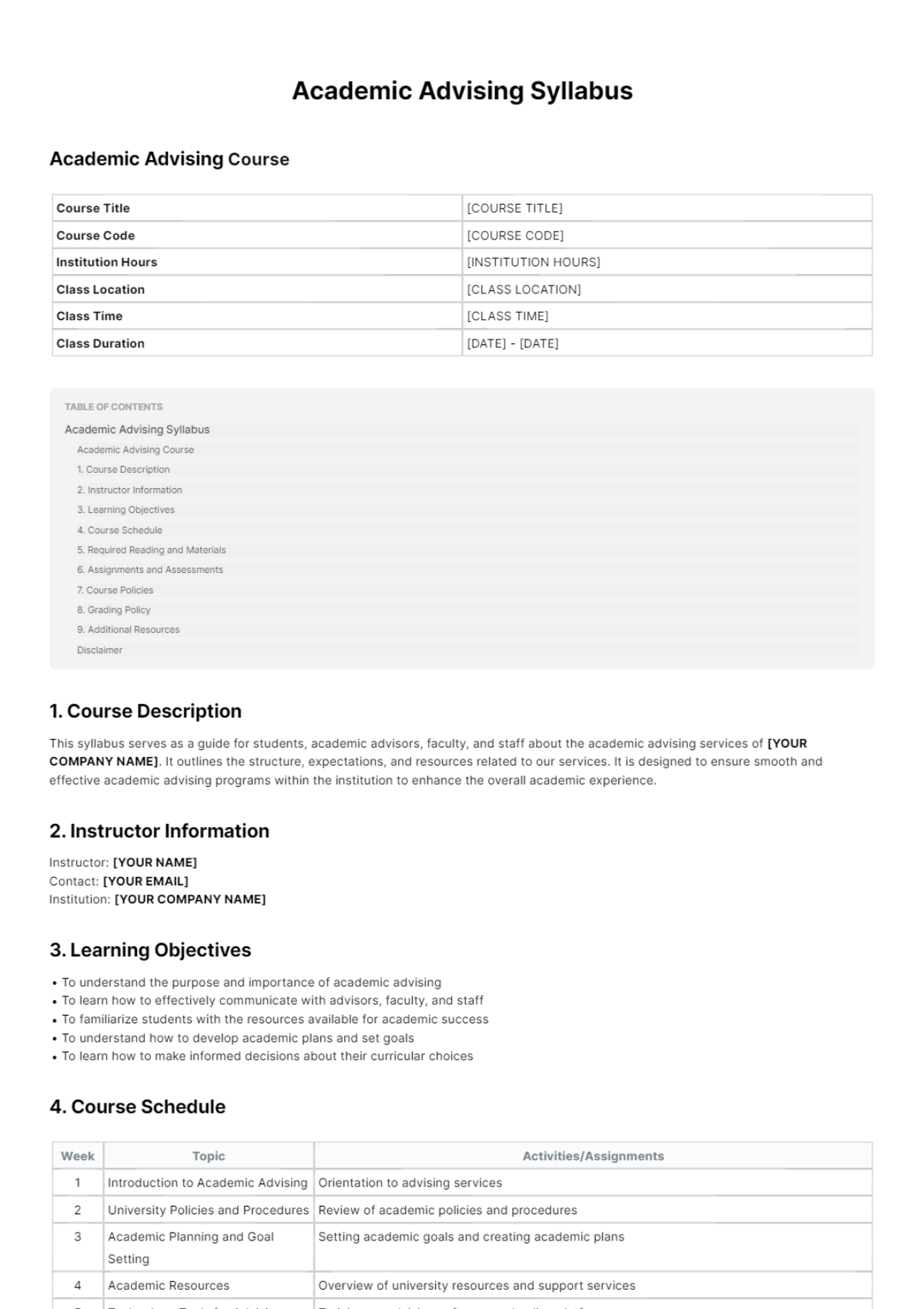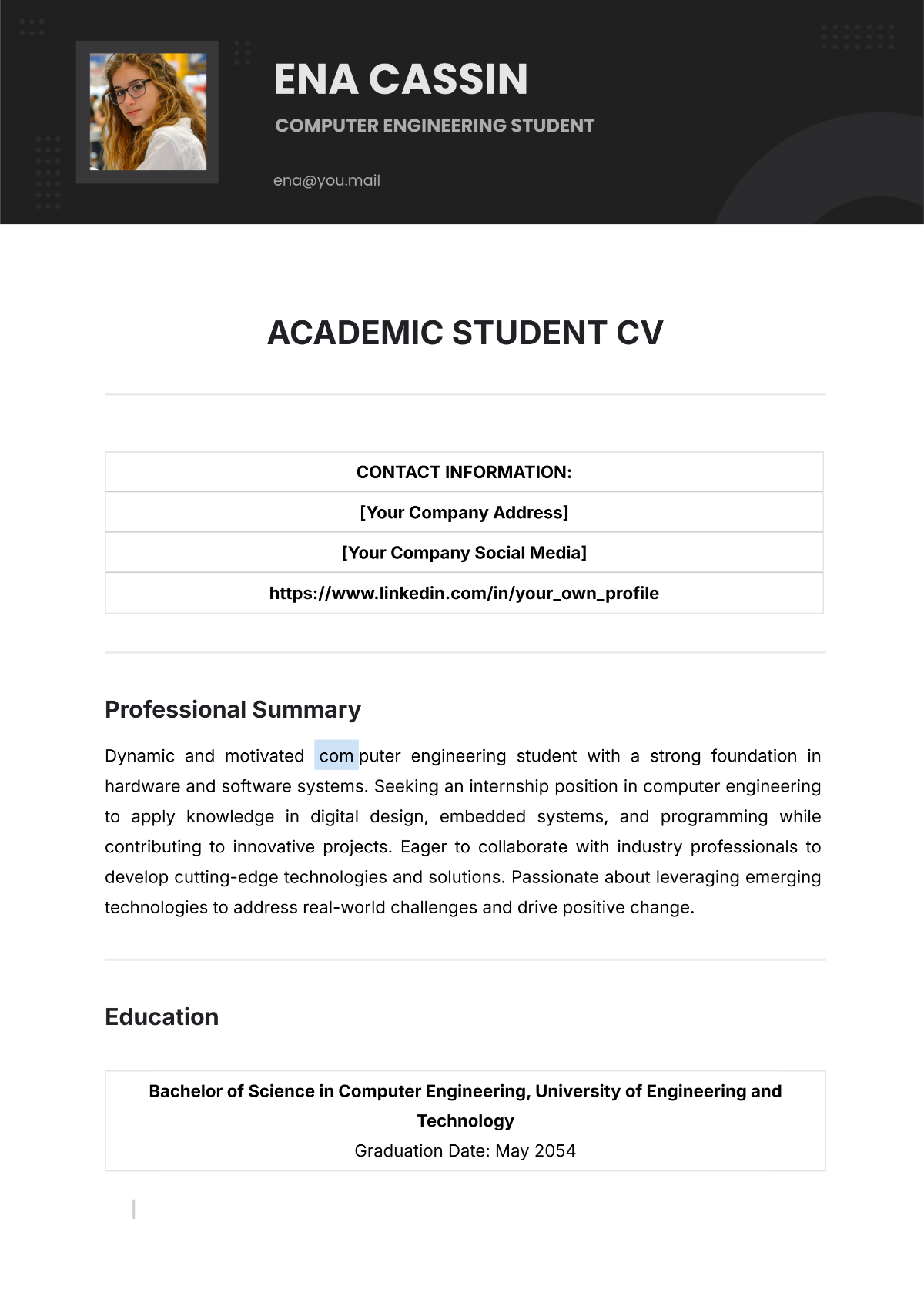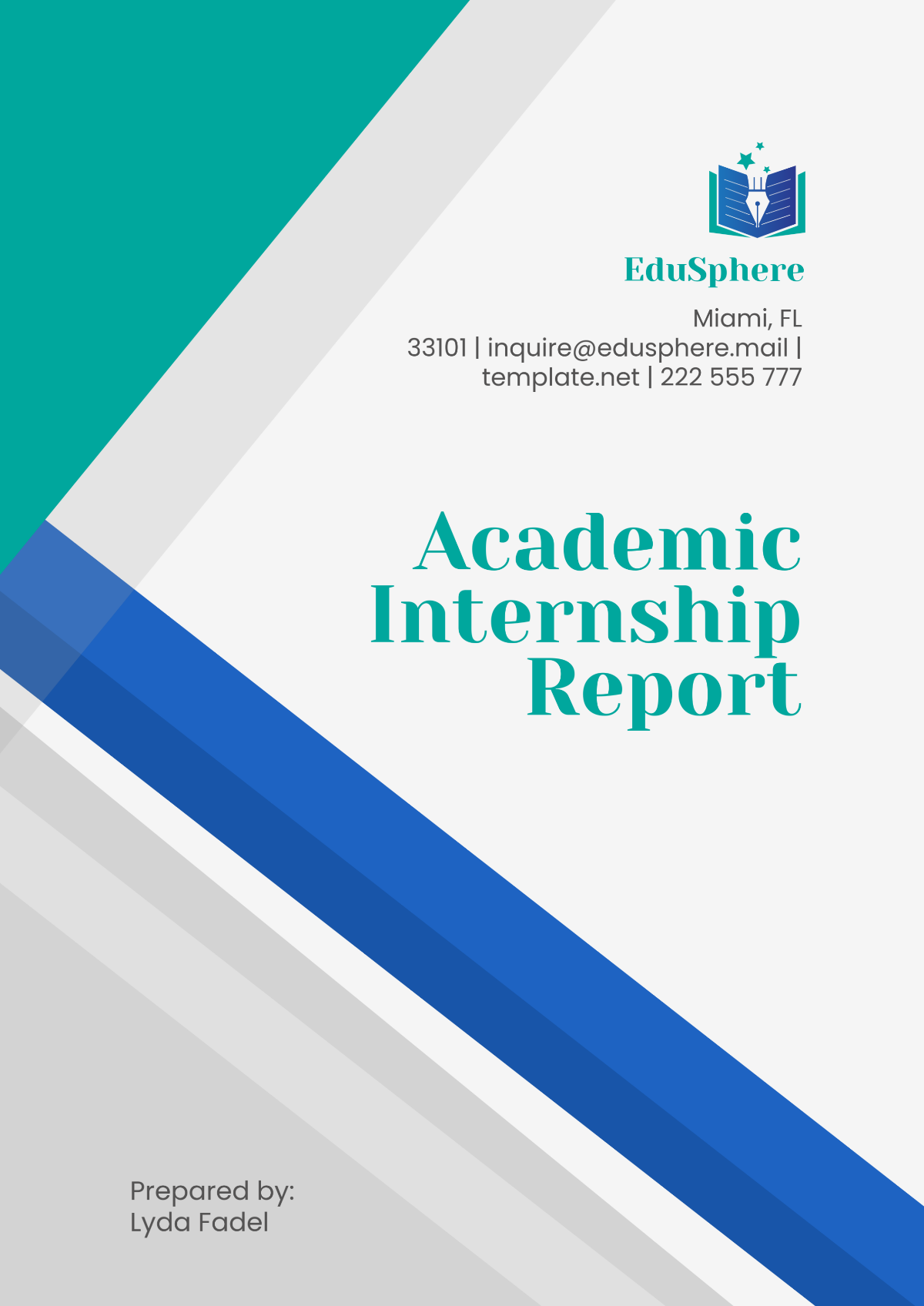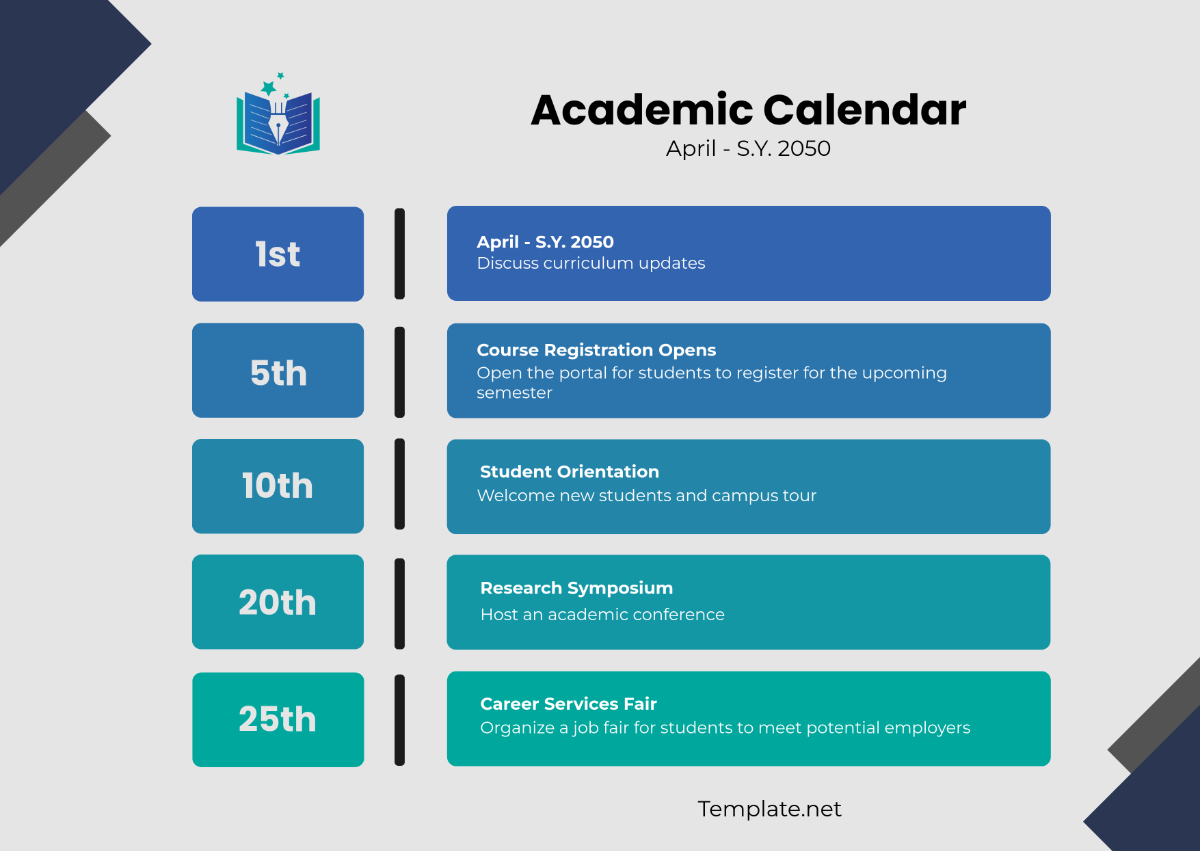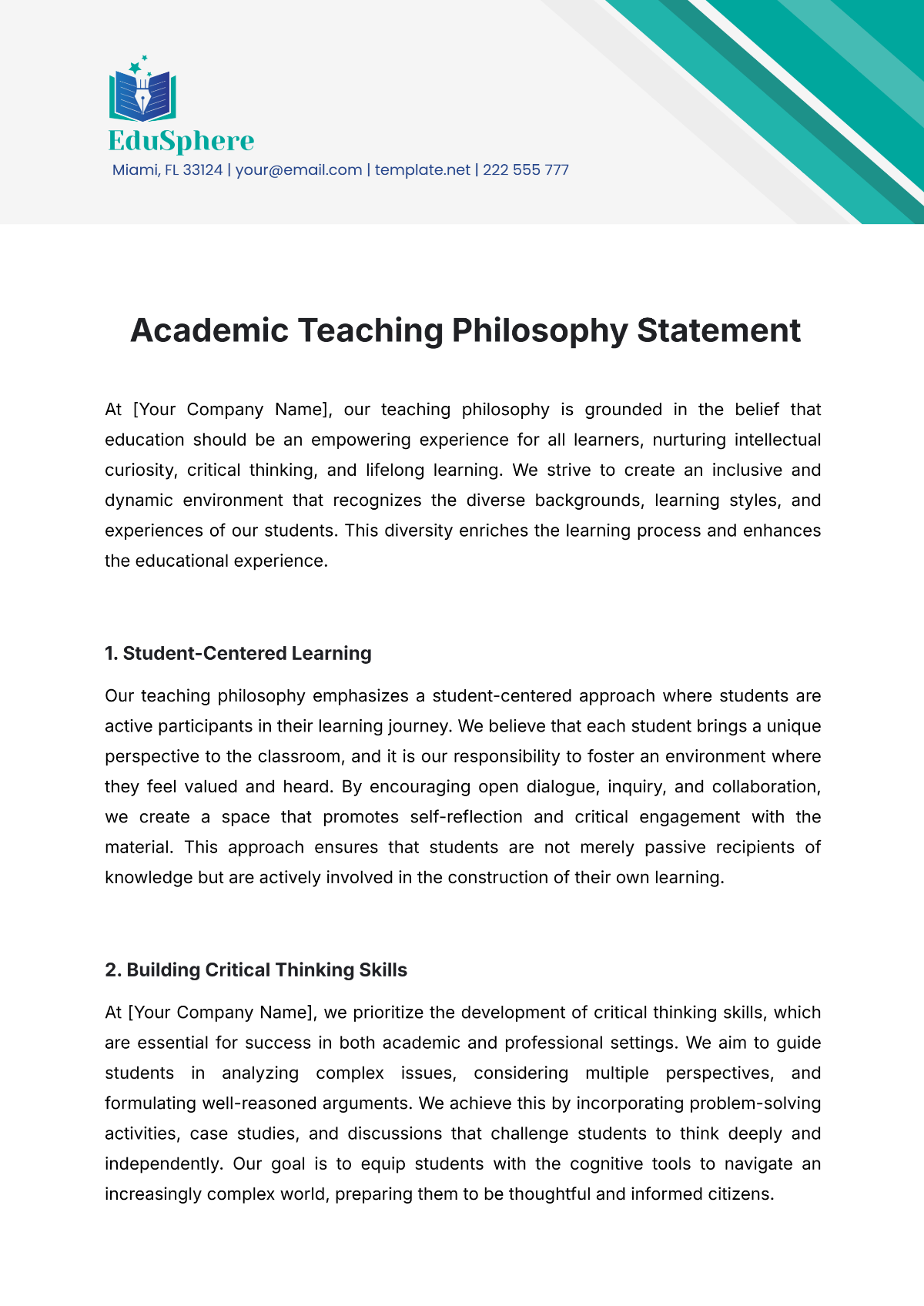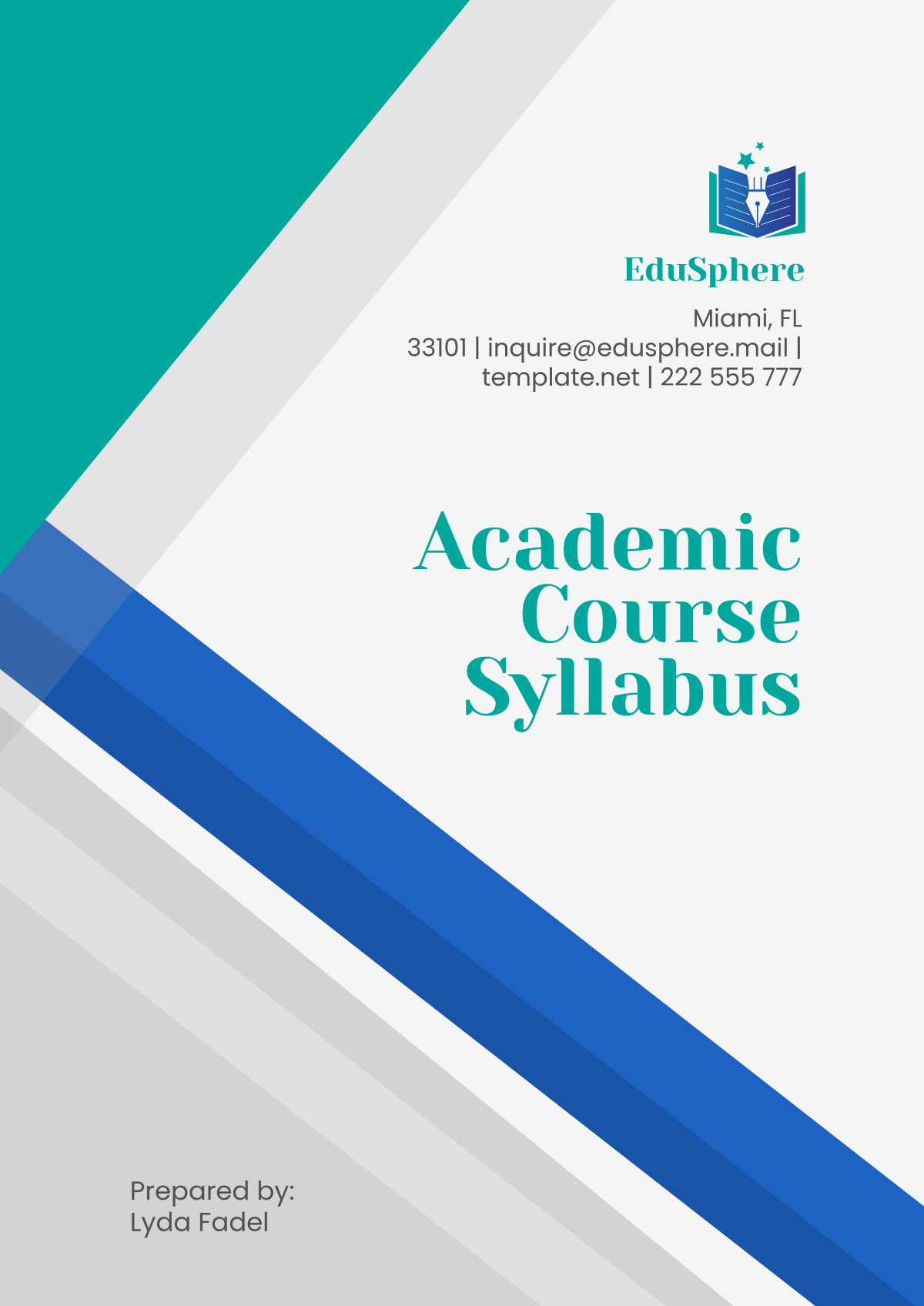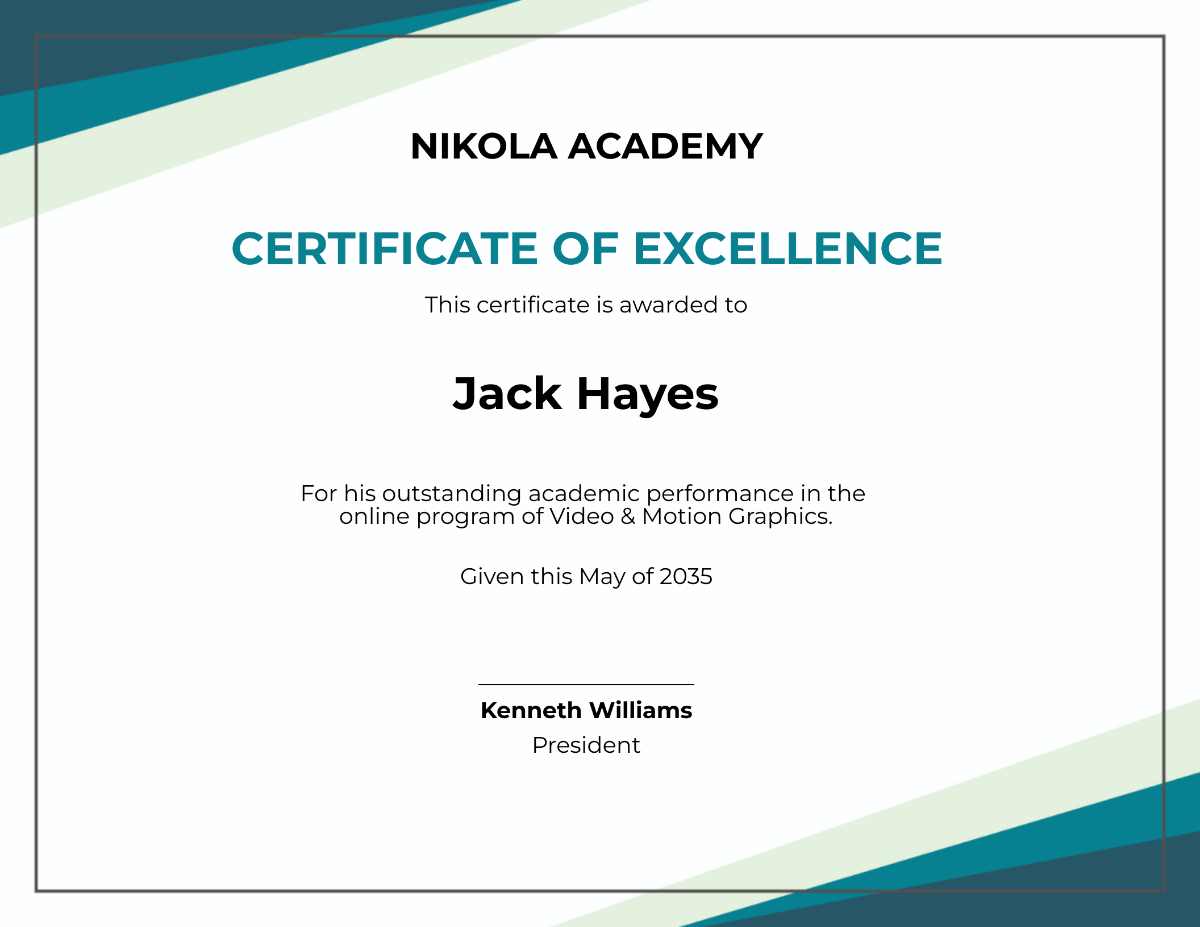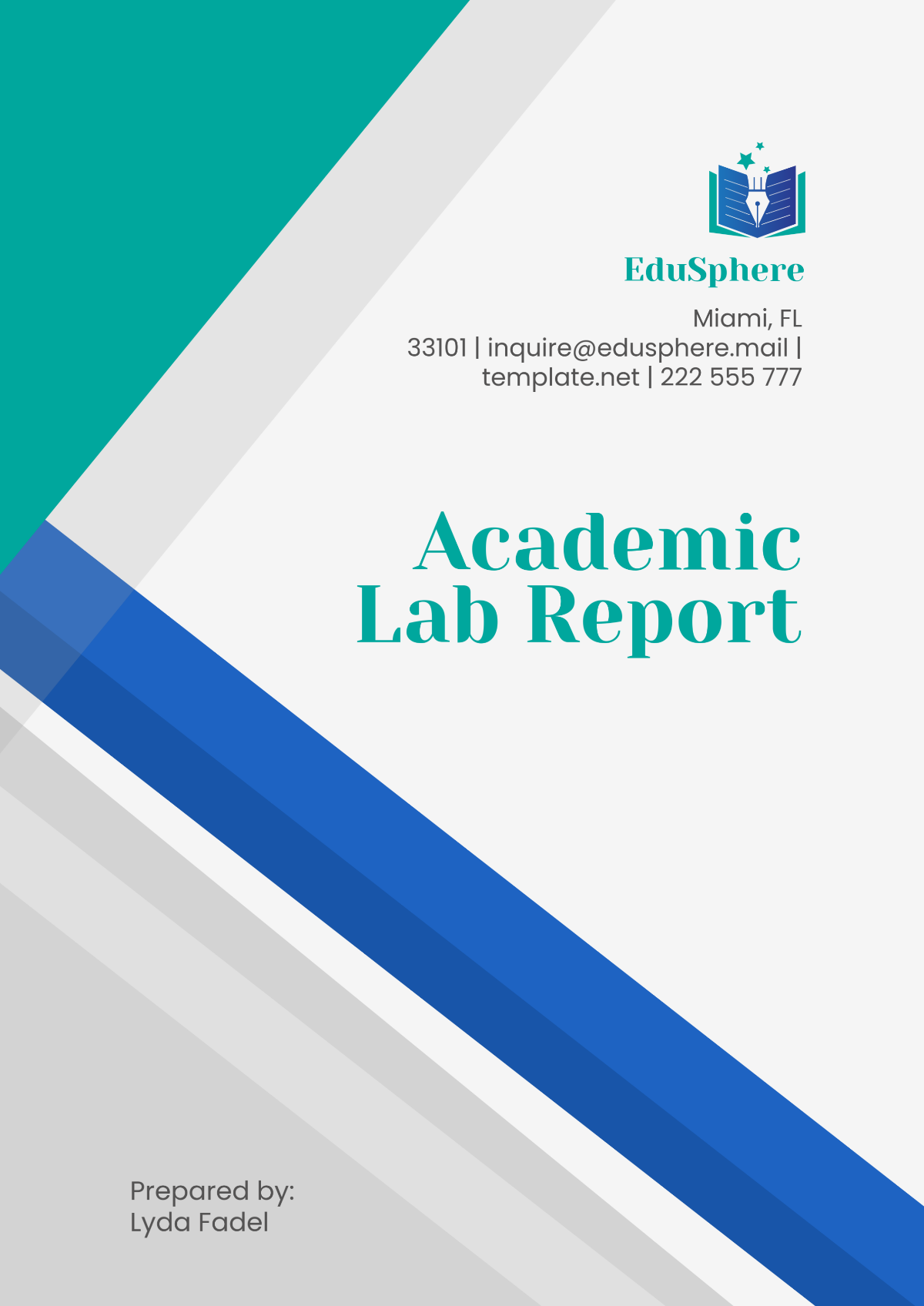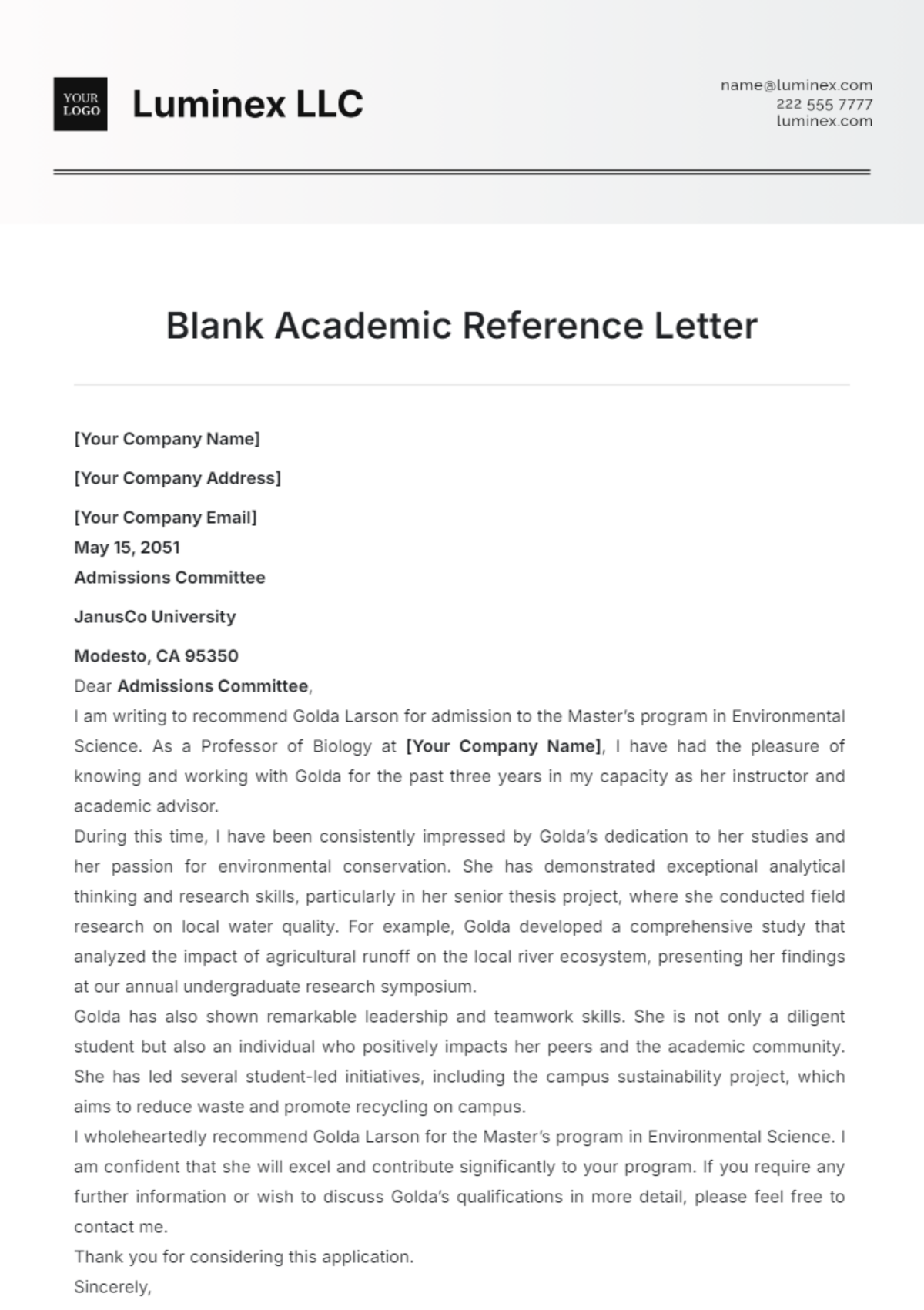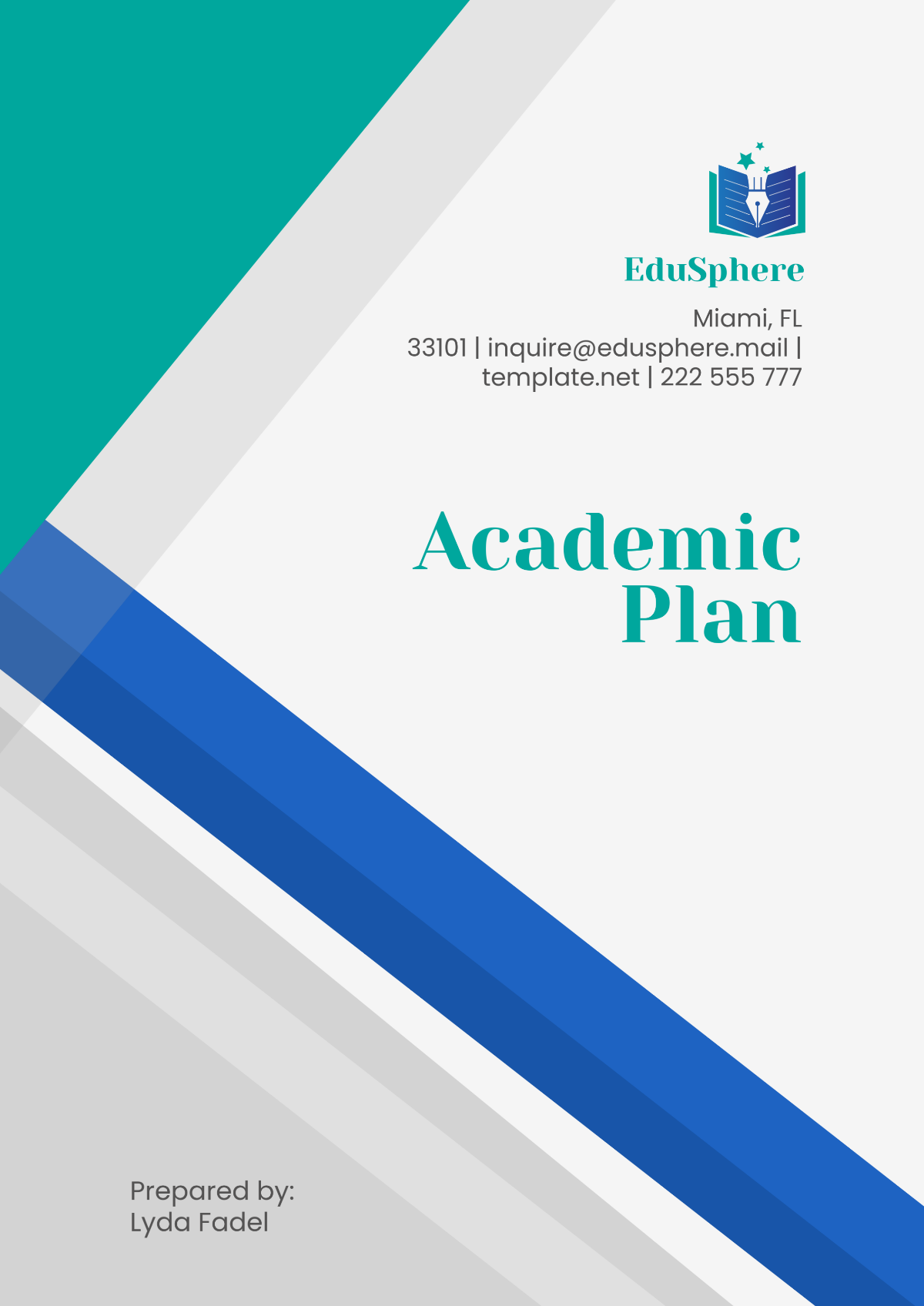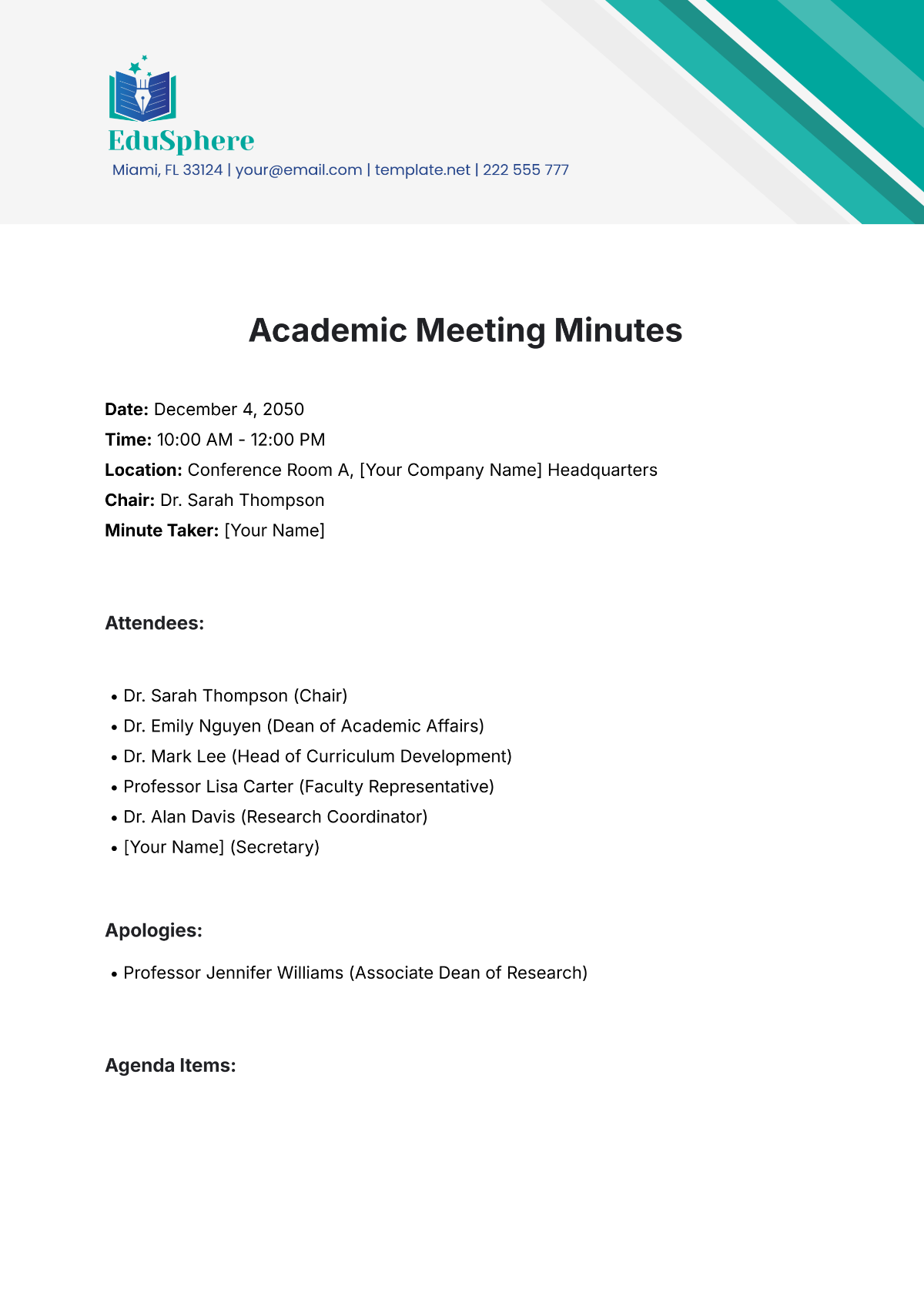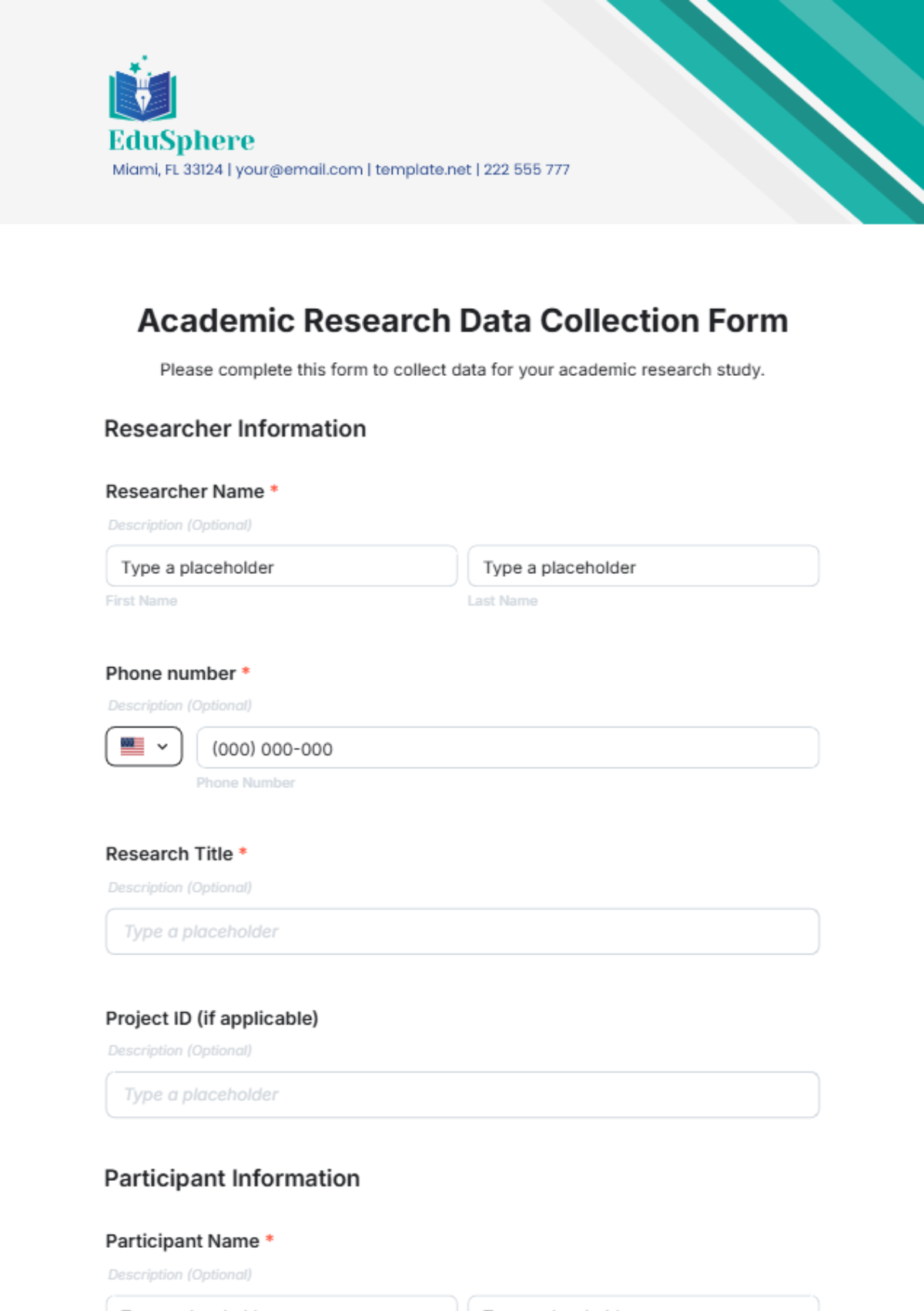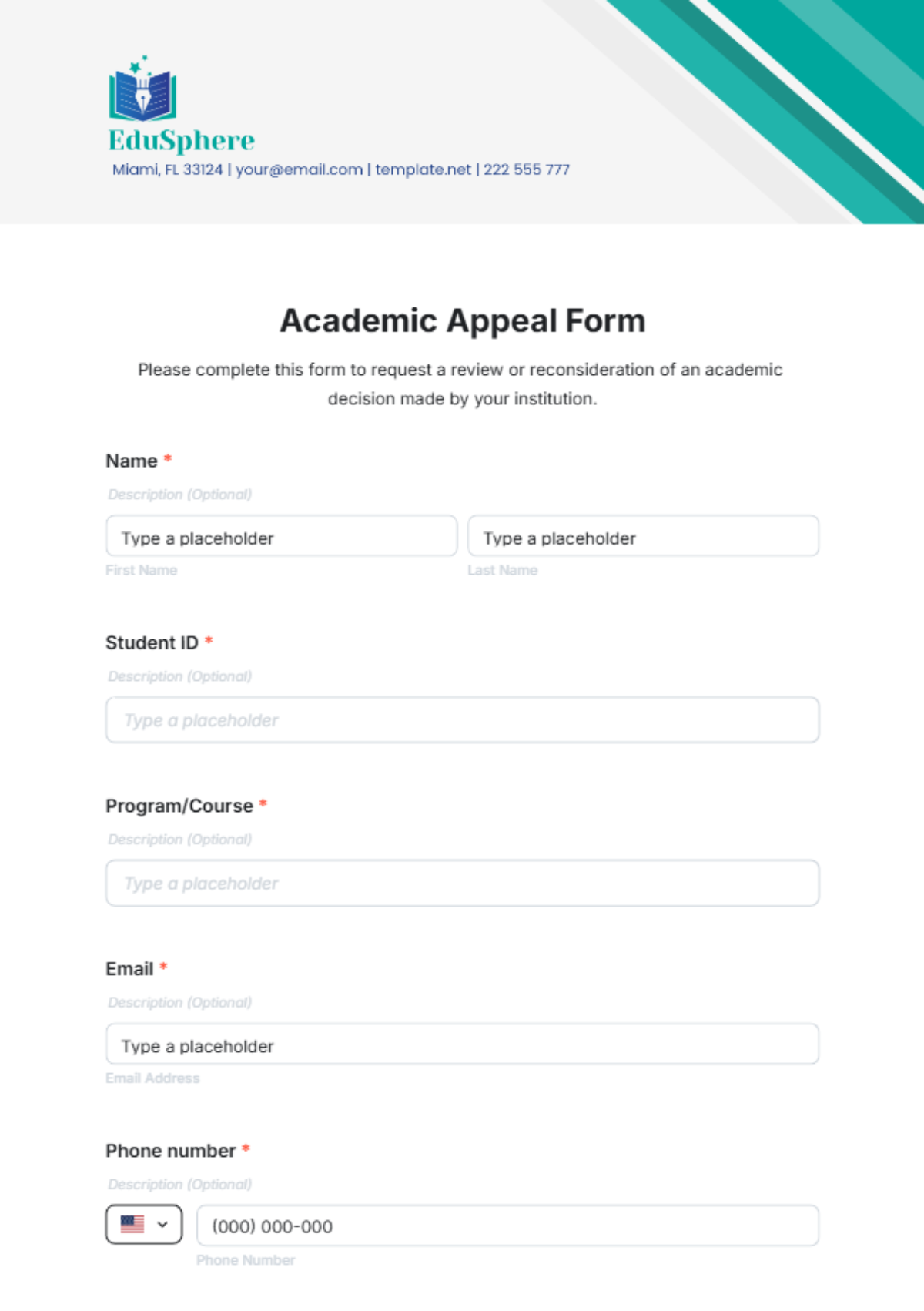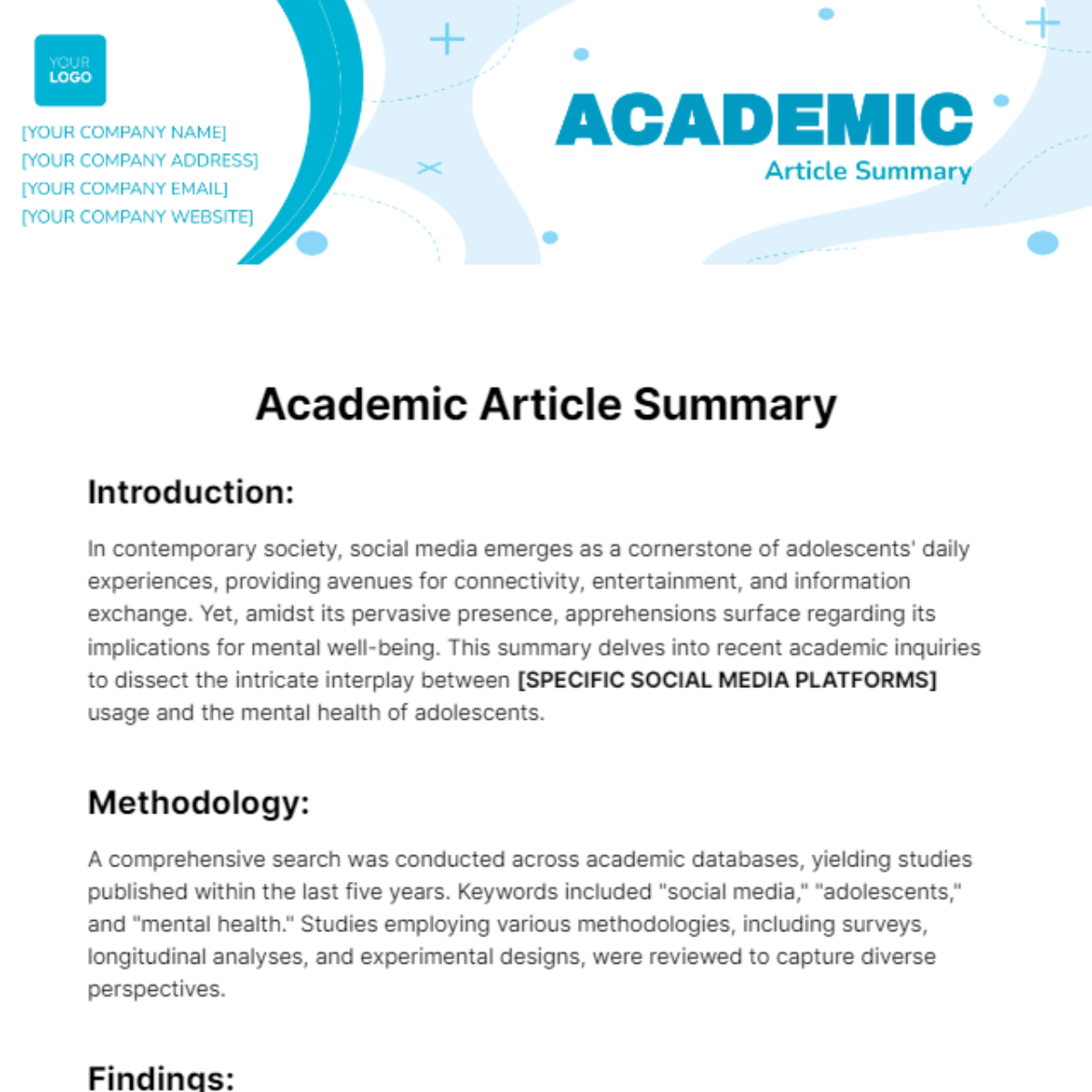Academic Course Syllabus
I. Course Information
A. Course Title
Advanced Studies in Artificial Intelligence (AI2050)
This course, "Advanced Studies in Artificial Intelligence," is designed for graduate students who already possess a fundamental understanding of AI principles. It is a specialized course that delves deeper into advanced AI techniques and their real-world applications. Throughout the course, students will gain the theoretical knowledge necessary for mastering AI algorithms and techniques and the practical skills required to develop and deploy AI-driven solutions to solve complex problems in various industries.
B. Credit Hours
[3] Credit Hours
The course is a [3]-credit hour course, typically held over a [16]-week semester. Students are expected to spend approximately [6] to [9] hours per week outside of class on coursework, including assignments, reading, and project work. The class is held twice a week, with each session lasting [2] hours, and there will also be additional time allocated for lab work and consultations with the instructor.
C. Prerequisites
Introduction to Artificial Intelligence (AI1010): A basic course in AI that covers foundational concepts such as search algorithms, problem-solving techniques, and elementary machine learning models.
Data Structures and Algorithms (CS1020): This course focuses on the core principles of computer science, including sorting and searching algorithms, data structures like trees, graphs, and heaps, which are essential for understanding AI algorithms.
Programming Basics (CS1015): An introductory course in programming that covers fundamental coding concepts and languages such as Python, which is the primary language used in this course for implementing AI algorithms.
These prerequisite courses are required to ensure that students possess the basic understanding and skillset needed to excel in this advanced course on artificial intelligence.
D. Course Level
Graduate Level
The course is intended for graduate students who are already familiar with the basics of AI. It requires the ability to critically analyze complex systems and engage with theoretical concepts that build on foundational AI knowledge. Students are expected to be self-motivated, disciplined, and prepared for independent research.
II. Instructor Information
A. Instructor Name
[Your Name]
B. Contact Information
Email: [Your Email]
Phone: [Your Company Number]
The instructor is available for consultation outside class hours via email or during office hours. Students are encouraged to reach out for guidance on course material, assignments, or any other academic concerns. Response time for emails is typically within [48] hours.
C. Office Hours
Days: Mondays and Wednesdays
Time: [2:00 PM] – [4:00 PM]
Location: Room [2050], [Your Company Name] Campus
Office hours are an essential time for students to get clarification on complex topics, receive feedback on their progress, and discuss any questions they have regarding the course material. Appointments outside regular office hours can be made if necessary.
III. Course Description
This course provides an in-depth exploration of advanced artificial intelligence (AI) concepts, techniques, and their applications. The course builds on prior knowledge of AI and machine learning, guiding students through more sophisticated methodologies such as deep learning, natural language processing (NLP), reinforcement learning, and AI ethics. Real-world applications in industries such as healthcare, finance, robotics, and autonomous systems will be explored in detail.
Students will also engage with cutting-edge research in the AI field, identifying key trends and challenges, and will have the opportunity to design and implement AI-driven solutions to address these challenges. The course incorporates both theoretical learning and hands-on programming assignments, ensuring that students leave with the practical experience necessary to work in advanced AI roles.
The course content is aligned with current trends and demands in AI, ensuring that students are equipped with the knowledge and skills necessary to contribute meaningfully to the future of the field. Ethical considerations in AI and machine learning will also be a key focus, preparing students to work responsibly in an evolving technological landscape.
IV. Course Objectives
By the end of this course, students will be able to:
Understand Advanced AI Concepts
Students will learn the core principles of deep learning, reinforcement learning, and natural language processing. They will be able to explain how these concepts are applied in real-world AI systems, such as voice assistants, autonomous vehicles, and personalized recommendations.
Understanding the mathematics and theory behind AI models will be an integral part of this objective.
Develop AI Applications
Students will be able to apply machine learning and deep learning models to real-world problems. This includes developing AI applications for image recognition, natural language understanding, and predictive modeling.
They will be expected to use popular machine learning frameworks such as TensorFlow and PyTorch to implement their solutions, allowing them to directly work with industry-standard tools.
Evaluate Ethical Implications
Students will critically assess the ethical implications of AI technologies in society. They will explore the concepts of algorithmic bias, fairness in AI models, and the societal impact of deploying AI systems in areas such as surveillance and hiring practices.
They will also learn how to integrate ethical considerations into the design and implementation of AI systems to ensure responsible use of technology.
Collaborate on Research Projects
Students will engage in collaborative research projects where they can apply AI methodologies to solve industry-relevant problems. They will be expected to work in teams to produce well-researched, practical solutions that can be presented and potentially implemented in real-world scenarios.
These projects will require students to demonstrate not only their technical skills but also their ability to work as part of a team and communicate their findings effectively.
V. Required Materials
A. Textbooks
Deep Learning by Ian Goodfellow (2050 Edition)
This textbook provides a comprehensive introduction to the field of deep learning. It covers both the theoretical foundations and the practical aspects of deep neural networks and deep learning algorithms.
Artificial Intelligence: A Modern Approach by Stuart Russell and Peter Norvig (2050 Edition)
This textbook is a cornerstone resource in AI education. It covers the breadth of AI topics, including problem-solving, search algorithms, logic, machine learning, and AI ethics.
B. Software and Tools
Python 3.x: Python is the primary language used in the course for all programming assignments, due to its simplicity and extensive support for machine learning and AI libraries.
TensorFlow: This open-source library is used for developing deep learning models and neural networks. It allows students to create and train complex models with minimal code.
PyTorch: Another popular deep learning framework that is more flexible than TensorFlow, used for creating dynamic computational graphs.
Jupyter Notebook: An interactive development environment where students will write and execute their code in real time.
C. Supplementary Resources
[Your Company Name] Digital Library: Access to additional resources, including research papers, journals, and case studies that provide further insight into current AI trends and research.
AI Industry Journals: A subscription to industry journals that will be available to students. This will allow students to keep up with the latest advancements in AI and machine learning.
VI. Course Policies
A. Attendance
Mandatory Attendance: Attendance is required for all lectures and laboratory sessions. The dynamic nature of AI discussions, coding demonstrations, and collaborative work necessitates full participation.
Absences: Students are allowed [2] unexcused absences. Any additional absences may result in a reduction in participation points or a grade penalty. If a student anticipates being absent, they are encouraged to inform the instructor in advance and provide appropriate documentation if the absence is due to a medical condition or emergency.
B. Grading Policy
Late Submissions: Late assignments will incur a penalty of [10%] per day. Assignments that are more than [5] days late will not be accepted unless there are exceptional circumstances.
Academic Integrity: All students are expected to adhere to the highest standards of academic integrity. Plagiarism or cheating will result in the immediate failure of the assignment and may lead to further disciplinary action by the Academic Integrity Board.
VII. Course Schedule
The course schedule is designed to ensure that students progressively build their knowledge and skills in artificial intelligence (AI). Each week focuses on a specific topic, combining theoretical concepts with practical applications. The assignments and activities are structured to help reinforce the material, encourage engagement, and prepare students for real-world challenges in the AI field.
Week 1: Introduction to Advanced AI
Lecture Content:
Overview of the course and expectations.
Review of fundamental AI concepts: search algorithms, knowledge representation, and problem-solving techniques.
Introduction to advanced AI topics: deep learning, reinforcement learning, and natural language processing (NLP).
The importance of ethics and social responsibility in AI development.
Preparation:
Read Chapters 1–3 from Deep Learning by Ian Goodfellow, covering the foundations of AI and deep learning architectures.
Prepare for a basic quiz to refresh key AI concepts learned in previous courses.
Assignment:
Quiz [1]: Fundamentals of AI
The quiz will test students on foundational concepts and terminology in AI, such as search algorithms, problem-solving models, and essential machine learning concepts.
Week 2: Machine Learning Techniques
Lecture Content:
Overview of machine learning (ML) types: supervised learning, unsupervised learning, and reinforcement learning.
Deep dive into supervised learning: regression models, decision trees, and support vector machines (SVM).
Training and evaluating machine learning models: loss functions, cross-validation, and bias-variance tradeoff.
Introduction to unsupervised learning: clustering techniques, k-means, hierarchical clustering.
Preparation:
Read Chapters 4–5 from Deep Learning by Ian Goodfellow to understand the foundations of supervised learning algorithms and model evaluation techniques.
Assignment:
Assignment [1]: Supervised Learning
Students will implement a supervised learning algorithm, such as a decision tree or support vector machine, on a dataset to predict outcomes. They will evaluate the model’s performance using various metrics such as accuracy, precision, and recall.
This assignment encourages students to practice feature engineering, data preprocessing, and model evaluation.
Week 3: Deep Learning Models
Lecture Content:
Understanding neural networks: architecture, activation functions, and layers.
Introduction to deep learning models: convolutional neural networks (CNNs) for image processing, recurrent neural networks (RNNs) for time series and sequence data.
Backpropagation and gradient descent: understanding the optimization of neural networks.
The importance of training datasets, model hyperparameters, and avoiding overfitting in deep learning models.
Preparation:
Read Chapters 6–8 from Deep Learning by Ian Goodfellow, focusing on the theoretical underpinnings of deep neural networks and CNNs.
Assignment:
Project Proposal Submission
Students will submit a proposal for their final project, which should involve applying deep learning methods to a real-world dataset. The proposal must include the problem definition, data sources, proposed model architecture, and evaluation metrics.
Week 4: Natural Language Processing (NLP)
Lecture Content:
Introduction to natural language processing: text processing, tokenization, and part-of-speech tagging.
Techniques for language modeling: bag of words (BoW), TF-IDF, word embeddings, and recurrent neural networks (RNNs).
Applications of NLP: sentiment analysis, language translation, and chatbots.
Ethics in NLP: bias in language models and ethical considerations for AI systems that interpret language.
Preparation:
Read Chapter 9 from Artificial Intelligence: A Modern Approach by Russell and Norvig, which covers the basics of NLP and its applications.
Assignment:
Quiz [2]: NLP Basics
The quiz will test the students' understanding of key NLP concepts such as tokenization, word embeddings, and basic NLP algorithms used for tasks like sentiment analysis.
Week 5: Ethics in AI
Lecture Content:
Understanding AI ethics: algorithmic bias, fairness, transparency, and accountability.
Ethical implications of AI in decision-making: autonomous systems, hiring algorithms, and criminal justice.
Challenges in creating ethical AI: fairness, privacy concerns, and societal impact.
The role of AI researchers in advocating for responsible AI.
Preparation:
Read industry articles on AI ethics, including case studies and examples of algorithmic bias and discrimination.
Assignment:
Debate: Ethical Challenges in AI
Students will participate in a debate, where they will argue for or against the use of certain AI technologies in specific real-world applications. They will consider ethical issues such as bias, discrimination, and privacy, and support their positions with evidence and case studies.
Week 6: Industry Applications of AI
Lecture Content:
AI in healthcare: diagnostic tools, personalized medicine, and drug discovery.
AI in finance: algorithmic trading, credit scoring, fraud detection.
AI in robotics and autonomous systems: robot vision, motion planning, and decision-making.
Exploring AI in creative industries: music composition, art generation, and content creation.
Preparation:
Read research papers on the latest AI applications in healthcare, finance, and robotics.
Review industry reports on AI’s impact on various sectors.
Assignment:
Case Study Analysis
Students will analyze an AI application in a particular industry (healthcare, finance, or robotics) and evaluate its effectiveness, challenges, and potential for improvement. They will prepare a report that includes a thorough analysis of the case study, identifying both the technical and ethical challenges involved.
Week 7: AI Research Methodologies
Lecture Content:
Understanding the research process in AI: from problem definition to solution evaluation.
Research techniques: literature reviews, hypothesis formulation, experimental design, and result analysis.
Introduction to writing AI research papers: structure, formatting, and presenting findings.
Reviewing cutting-edge AI research papers to stay updated on the latest developments in the field.
Preparation:
Read Chapters 10–11 from Artificial Intelligence: A Modern Approach by Russell and Norvig to understand research methodologies in AI.
Review a selection of research papers from top AI conferences (e.g., NeurIPS, ICML) to explore current research trends.
Assignment:
Research Draft Submission
Students will submit a draft of their final research paper. The draft should include an introduction to the topic, a review of related work, a description of their methodology, and an outline of their findings. This will allow students to receive feedback before submitting their final research paper in Week 9.
Week 8: Final Project Presentations
Lecture Content:
Preparing and delivering a professional AI research presentation: tips for structuring the presentation, engaging the audience, and answering questions.
Ethical considerations when presenting AI solutions to diverse stakeholders.
Evaluating the scalability and societal impact of AI systems.
Preparation:
Finalize your research project and prepare a presentation that clearly communicates the problem, methodology, results, and conclusions.
Prepare to defend your project in front of peers and instructors.
Assignment:
Final Project Submission
The final project is a comprehensive AI application or research project that students have worked on throughout the course. The project should demonstrate the students' ability to apply AI techniques to real-world problems, as well as their understanding of ethical implications. Students will submit their code, a detailed report, and the results of their project.
VIII. Assessment and Evaluation
The assessment structure for this course is designed to test both theoretical knowledge and practical skills. Each component of the course, from quizzes to the final project, is designed to reinforce key learning objectives and prepare students for professional work in the AI field.
A. Class Participation
Weight: [10%]
Active participation in class discussions, group activities, and labs is critical for mastering complex AI topics. Students are expected to engage with the course material and contribute thoughtful insights and questions during lectures. Active participation will be evaluated based on the quality and frequency of contributions to discussions, as well as involvement in group projects.
B. Quizzes
Weight: [20%]
There will be two quizzes during the course, each contributing [10%] to the final grade. These quizzes will test students' understanding of key concepts discussed in class and will cover material from the assigned readings, lectures, and activities. The quizzes will be timed and administered online, with a focus on multiple-choice and short-answer questions.
C. Assignments
Weight: [30%]
Two major assignments will be given throughout the course, each contributing [15%] to the final grade. These assignments will focus on the application of machine learning and deep learning models to real-world problems. Students will be required to code algorithms, analyze results, and write comprehensive reports detailing their approach and findings.
D. Final Project
Weight: [40%]
The final project is a comprehensive AI research or application project. It will require students to demonstrate their ability to apply the knowledge and skills acquired throughout the course. The project will be assessed based on the quality of the research or implementation, the soundness of the methodology, and the thoroughness of the final report and presentation. Students will present their findings to the class, and peer reviews will be a part of the assessment process.
IX. Learning Outcomes Measurement
A. Participation Metrics
Active participation during lectures and lab sessions is crucial to understanding complex AI concepts.
Students will be assessed based on their contributions to discussions, questions posed during lectures, and involvement in group activities.
B. Assignment Rubric
Criterion | Excellent | Good | Satisfactory | Needs Improvement |
|---|---|---|---|---|
Content Relevance | Fully aligned | Mostly aligned | Somewhat aligned | Misaligned |
Analytical Depth | Exceptional | Proficient | Basic | Insufficient |
Practical Application | Highly innovative | Practical and sound | Adequate | Limited or missing |
X. Course Fees
Course Fee: $[1,200]
Additional Materials: $[200]
These fees cover the cost of course materials, software licenses, and access to supplementary resources, including subscriptions to journals and online tools.


